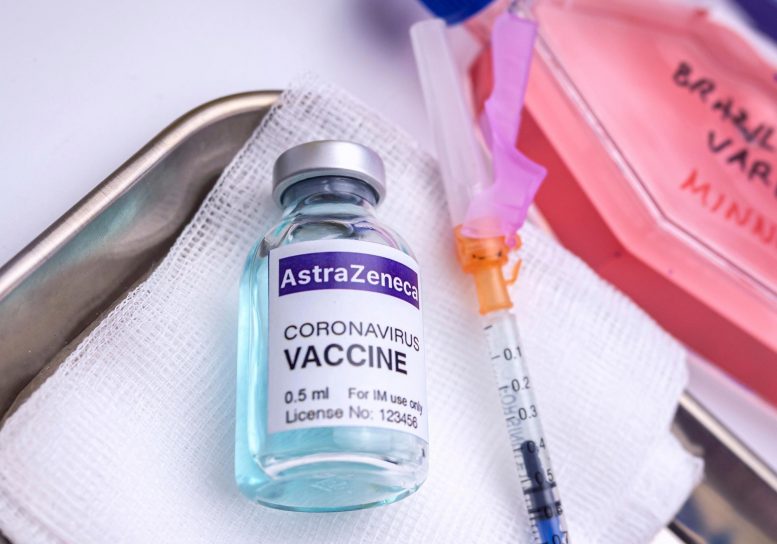
AstraZeneca COVID-19 Vaccine
New research highlights the need for heightened awareness and early testing for patients with signs of clotting disorder following vaccination.
New research has shown that early testing for blood clots in patients who had received the AstraZeneca/Oxford vaccine led to them being treated successfully, highlighting the need for heightened awareness of the risk among doctors.
The work, led by researchers from RCSI University of Medicine and Health Sciences and the National Coagulation Centre at St James’s Hospital, is published in the British Journal of Haematology.
Unusual blood clots with low blood platelets have been recognized as a very rare complication of the AstraZeneca vaccine. However, with increased awareness, patients may not have all of these symptoms when they initially present to medical services.
The researchers highlighted four patients who had clotting complications induced by the vaccine (Vaccine Induced Thrombotic Thrombocytopenia, VITT). Based on the current guidance, each patient could have been classified as a low likelihood for this syndrome when they presented to doctors, but due to the increased awareness and clinical vigilance from the medical teams involved, all were sent for testing early, diagnosed, and treated successfully.

Dr. Michelle Lavin is the lead author of the paper and researcher at the Irish Centre for Vascular Biology and the RCSI School of Pharmacy and Biomolecular Sciences. Credit: RCSI University of Medicine and Health Sciences
“The risk of developing a blood clot from the vaccine is still far lower than the risk of developing clots from COVID-19, but it is imperative that clinicians are vigilant in detecting symptoms among vaccinated patients,” said Dr. Michelle Lavin, the lead author of the paper and researcher at the Irish Centre for Vascular Biology and the RCSI School of Pharmacy and Biomolecular Science.
“Our research has shown that current guidelines lack the sensitivity to detect early cases of vaccine-induced clotting, which could risk missing or delaying diagnoses. As our understanding of this novel condition evolves, heightening our clinical awareness can improve outcomes for patients through early testing and treatment.”
Reference: “Vaccine-induced immune thrombotic thrombocytopenia (VITT) – a novel clinico-pathological entity with heterogeneous clinical presentations” by Michelle Lavin, Patrick T. Elder, Denis O’Keeffe, Helen Enright, Eileen Ryan, Anna Kelly, Ezzat El Hassadi, Feargal P. McNicholl, Gary Benson, Giao N. Le, Mary Byrne, Kevin Ryan, Niamh M. O’Connell and James S. O’Donnell, 22 June 2021, British Journal of Haematology.
DOI: 10.1111/bjh.17613
This work is part of the Irish COVID-19 Vasculopathy Study (ICVS), supported by a Health Research Board COVID-19 Rapid Response award and also by a philanthropic grant from the 3M Foundation to RCSI University of Medicine and Health Sciences in support of COVID-19 research. The work was carried out in hospitals in both the Republic of Ireland and Northern Ireland.









Be the first to comment on "Blood Clots Related to AstraZeneca/Oxford COVID-19 Vaccine Can Be Treated With Early Detection"